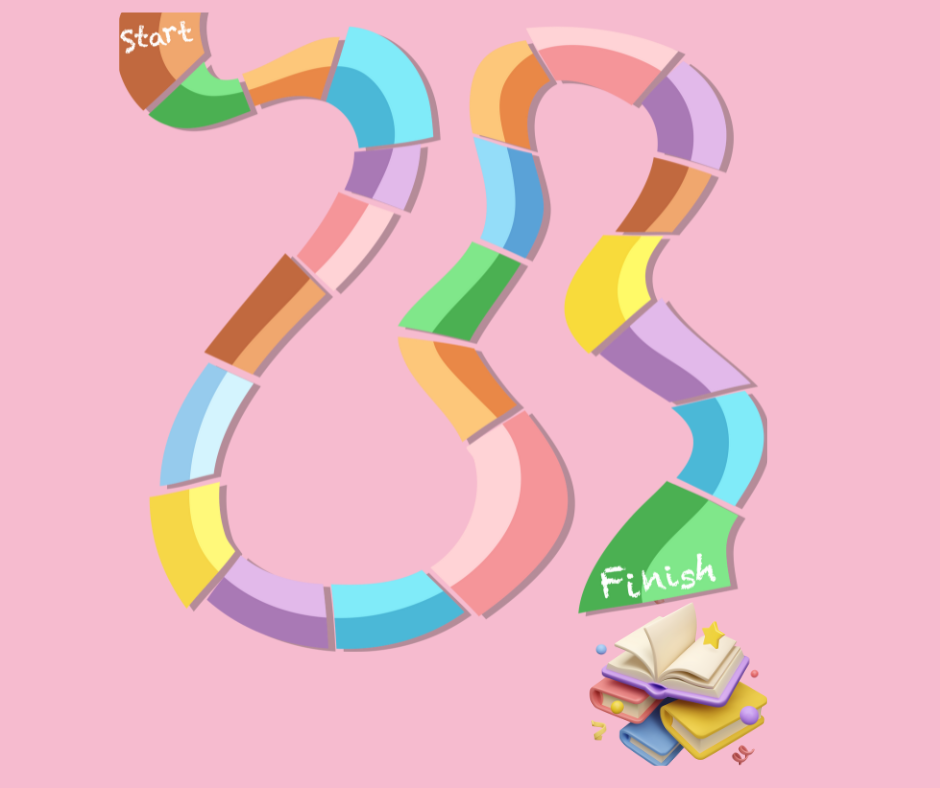Unlocking Your Romance Writing Potential Through AI

Table of Contents
UPDATED November 2023
AI came up in last week’s call and today a WWH member sent an AI poem for writers written in the form of Green Eggs and Ham. Unfortunately, it’s not posted online, so I can’t send a link. Suffice it to day, it was mostly spot on and hilarious.
AI is all the buzz and it’s likely here to stay. For romance authors, AI can offer a tool to assist you in many aspects of your writing, so I thought I’d share about AI and the tools you can use to write, edit, and promote your books.
NOTE: AI is a tool in the same way the Internet, books, and automation are tools. It’s there to help us. You can check out my post on AI as a Tool, Not a Threat or scroll to the end of this post* for my thoughts on AI’s impact on writers, as well as the impact on writing/publishing-related job such as editing.
This post is about using AI to get ideas, brainstorm when you’re stuck, to expand on your idea, help you improve your writing, and assist you in the other aspects of being an authorpreneur, such as creating marketing content.
ALLI has a post on AI for authors including ethical considerations.
Here is information about AI and below that you’ll find a list of AI tools and resources.
What is AI, and How Can it Help Romance Authors?
Artificial Intelligence (AI) is a rapidly growing technology that has the potential to revolutionize the way romance authors create content. AI writing tools can help authors save time and effort by automating certain tasks such as generating or brainstorming ideas, researching topics, and even writing outlines.
With AI-powered author productivity tools, romance authors can focus on what they do best — creating compelling stories that captivate their readers. AI-driven tools can also help authors stay organized and efficient while producing quality content at scale.
How to Use AI to Generate Ideas & Content Faster
AI-powered romance novel idea generators are becoming increasingly popular among writers. A WWH member who played around with Chatgpt was able to develop a regency-era romance idea.
AI tools use natural language processing to quickly generate ideas based on keywords or topics provided by the user. For example, “give me three plot ideas involving a grumpy hockey player and an curvy, outgoing dancer.”
Here’s one from Rytr:
Mitch is an NHL hockey player, whose career has been on the decline since he broke his leg a few seasons ago. He’s suffered from depression and become increasingly grumpy and frustrated, pushing away friends and family.
One day, while walking through town, Mitch stumbles upon an audition for a local dance troupe. Despite the fact that the audition is already halfway finished, he is captivated by a particular dancer: an exuberant and curvy woman named Olivia. When she catches Mitch’s eye, she smiles at him invitingly and draws him in to dance with her.
Mitch is hesitant at first but soon finds himself smiling too. After the audition they take their conversation outside and discover they have a lot in common: a love of music, sports, literature—even a favorite type of ice cream!
Instantly, the two of them felt a powerful connection that was much deeper than just mere shared interests; they both had the feeling of being on a search to find someone special and unique, like they had finally found what they were looking for.
Depending on the AI tool and what you want from it, you can generate basic story ideas (a premise) or a complete outline (with conflicts and plot beats) or something in between. As you’ll note from above, there’s a kernel of an idea, but a lot of work is still needed, specifically, the conflicts.
AI tools can be used to brainstorm as well. If you already have your idea somewhat plotted but are stuck, AI can provide you with ideas. Or, if AI generated the idea, you can ask more questions to expand on the concept.
For example, playing around with the idea of a vampire fireman, I asked ChatGPT to give me reasons a vampire would become a fireman. Here are the ideas it gave me.
- Redemption: The vampire may have a dark and troubled past filled with regrettable actions. Becoming a fireman is their way of seeking redemption and making amends for the harm they may have caused during their time as a vampire. They see it as a chance to save lives instead of taking them.
- Protecting Humanity: Some vampires may genuinely care about humanity and want to protect it from the supernatural threats that exist in their world. By becoming a fireman, they can respond to both regular fires and any supernatural fire-related incidents, using their unique abilities to save lives.
- Blending In: To hide their true nature, the vampire may choose a profession that allows them to blend in with humans. Firemen often work odd hours and wear protective gear, which can help conceal their vampiric traits, such as pale skin or sensitivity to sunlight.
- Feeding Opportunity: Firemen often respond to emergency scenes where there are injured individuals. This could provide the vampire with an opportunity to discreetly feed on blood from victims who are already in critical condition, without drawing suspicion.
- Personal Challenge: For some vampires, the physical and mental challenges of being a fireman can be appealing. They may enjoy pushing themselves to the limit, testing their strength, and feeling a sense of accomplishment when they successfully rescue people from dangerous situations.
These are intriguing ideas that lend themselves to very different types of vampire fireman stories. Is he feeding off fire victims or redeeming himself?
AI for Proofreading and Editing
AI-powered editing and proofreading tools provide a more efficient way to improve the quality of written content, while also helping authors save time and money. With an AI-powered tool, writers can automate tedious tasks such as checking for grammar mistakes and typos. Additionally, they can get automated feedback on their writing, such as overused words, adverbs, and even alternative word choices that might be better. Not only can this improve the quality of the work, but it helps the author improve their skills. If you pay attention to the corrections and suggestions it makes, you can learn how to write better in the future.
That’s not to say that human editors aren’t needed, because they are. AI tools aren’t fool proof. But AI editing can help you deliver a cleaner copy of your manuscript to your editor which means a quicker turnaround to get your book published.
AI for Book Covers and Other Graphics
This is another area where there’s a great deal of concern about copyright infringement. I’m not a lawyer so I can’t speak to the legal issues, although you can check out these articles at Harvard Business Review (4/23) and the Congressional Research Service (9/23). Beyond the legal issue is the ethical one. I don’t know how much AI generated art pulls from previous works, so I can’t speak to this. At one point, I considered using AI art as bonus content for my subscribers, but concerns about copyright issues has made me hesitate on this.
With that said, there are AI art generators that authors can use to create book covers and other graphics. You can also generate art just for yourself to use in your book bible, such as how your characters look or the house layout they live in.
The Writing Cooperative has a post in which Shelby Sullivan shares her experience using AI to generate images for book covers.
AI for Audio Books
The newest source of help for authors is AI for audio book creation. In the past, AI voice wasn’t great. As it improved, it worked well for non-fiction, but not so much for fiction, which needs emotion infused in the voices. But that is improving as well.
There are many authors who have used AI to create audiobooks for the purpose of posting them on YouTube. While many of these “videos” have negative comments for narration, they have many positive comments for the story. Better yet, many have the requisite subscriber and view counts to make money from Google/YouTube’s ad program.
In the last few months, I’ve used AI to serialize my lead magnet for podcast and video. It’s not perfect, but it’s also not horrible.
AI to Generate Author Marketing and other Content
Authors need to do more than write books. They need to write synopsis, tag lines, marketing materials, ads and more. AI can help writing these and can do it with your target market in mind. For example, I used Rytr to generate two versions of song lyrics for Valentines Day using a passionate tone. (Here is one of the results it gave me. This is the raw text. I haven’t edited it):
Option One
[Intro]
A love like ours won’t soon be found
Why don’t we take it right to the ground
[Verse 1]
This Valentine’s Day, I’m glad you’re here with me
My heart is filled with love, can’t you see?
We’ve been through thick and thin, come what may
And I know I’m yours, and you’re mine to stay
[Chorus]
Oh, what a beautiful thing it is to love somebody
To feel the warmth of your embrace and never let go
Oh, I wanna show you that my love for you will never die
And I’m so happy to call you my valentine tonight
[Verse 2]
My heart beats for the future that we may have together
Let’s light a candle in honor of this day forever
This Valentine’s Day will be like no other
Let’s make a wish and know it’ll come true forever
It’s not perfect, but there’s something to work with.
AI for Marketing and Other Business Tasks
Automation in marketing is nothing new. Autoresponders and social media schedulers are two examples of automation that help authors save time in promoting their books. But AI in marketing is slightly different. AI in marketing can help you:
- Discover best keywords to optimize your books, blog posts, etc
- Talk to your potential readers through chatbots on social media or your website to guide them to your lead magnet or books
- Brainstorm marketing ideas ala Chatgpt and similar AI
- Video generators
- Transcribing dictation
- And more.
Again, AI offers assistance to authors who are generally solo-preneurs, having to wear all hats in their romance writing business. Whether it’s help brainstorming or fleshing out ideas, editing, or creating marketing materials, AI can help in a way that is cheaper and faster than hiring outside help. With that said, there’s no replacing human creativity…at least not yet. So AI generated content shouldn’t be your final draft of anything you use it to create. Input your voice and style. Make it your own.
AI Tools for Authors
Here is a list of what I use, along with a list of other resources I haven’t had a chance to check out yet, but look interesting.
AI Jenna Harte Uses
Dragon Naturally Speaking Professional: I use this to transcribe my recorded dictation into text.
ChatGPT: Many other AI’s are focused in a single area such as writing or edit. ChatGPT is much more open and therefore has many different ways it can be helpful. I’ve used it to give me lists including the list of homophones in my post on 35+ words writers often accidently misuse. I’ve asked it to create a list of 52-short form video ideas (for weekly short videos), and plan to ask it to write a script for each. ChatGPT can help you plot, moving from a premise to story beats, and even chapter by chapter outline. You can use ChatGPT for free, although if there are a lot of users you may be asked to come back later. The paid version offers a more robust AI. It can probably write for you too, but as a writer, you probably want to do that part yourself 🙂
Rytr: I bought this a long, long time ago before AI was a dirty word. I use it mostly to help me outline blog posts (including this one), but it can do more including write ads, lyrics, plot ideas, emails, taglines, copywriting and more. Note, for fiction AI generators, I’d use one of the options below such as Sudowrite or NovalAi. Rytr is helpful with other AI writing, but not so much with fiction plotting.
Editing
Prowriting Aid: AI editor – I use this with Word usually while writing. When I finish writing, I like AutoCrit.
AutoCrit: I use ProwritingAid on my computer to deal with editing initially, but when I’m done, I use AutoCrit, which not only finds the stuff Prowriting Aid missed, but I can also have the book compared to the top books in my category to see that I’ve met similar criteria. I also like that it doesn’t try to get me to eliminate every “bad” thing. For example, it will highlight adverbs, but then will tell me how many I should get rid of to be similar to other books in my genre.
Marketing
SocialBee: I’ve used SocialBee for years because it has access to all the major platforms (including TikTok and Reels), and I can automatically reschedule evergreen content (e.g. lead magnet signup) for reposting. It also integrates with Canva, so I can create graphics from within the app. Plus it stores hashtags. It now offers AI help in generating content and graphics. Disclosure: I bought a lifetime access to SocialBee through Appsumo.
Ocoya: This is a social media generator and scheduler. I haven’t used it much, but I want to start using it more. My social media is haphazard because I often don’t know what to post. Ocoya helps generate ideas for the major platforms, has AI copywriting, help in creating graphics, and the ability to help you find ideas based on keywords and hashtags. It even will generate and create quote posts if you’re really stuck.
Aweber: I’ve used Aweber forever. It was one of the few email services that allowed you have multiple email lists within one account. Like other email services, you can have autorepsonders, campaigns, and segment your lists. Aweber now has tools so you can create a landing page (so you don’t need a website or landing page service) and you can sell directly from Aweber (integrating Stripe). And now, it offers AI help in writing your content.
Audie.ai: This text-to-voice tool seems to have been created for authors specifically. While there is backlash to using AI audio because it potentially takes away work from narrators, if you don’t have the budget to hire a narrator, this is another option to create audio of your books. I’ve been using this tool to create serialized audio podcast/video of my lead magnet. You pick your cast of character voices, paste your content in, assign the voices to the various lines in your text, and generate. It’s not perfect, but it’s also not so bad. Not available yet is the ability to change the speed or pitch. For that, you might want to try Murf.ai. There is a free option for small projects (e.g. creating a TikTok audio of a scene in your book). One advantage to Audie.ai over Murf.ai and others is that you buy credits instead of committing to a monthly plan.
Pictory: This AI can turn text into video and can help you turn long-form video into shorter (think social media) video for marketing. I’ve been using this to add video to my blog posts.
Lumen5: Like Pictory, Lumin can turn text into video.
Other
Voicetapp: I own this, but haven’t used it yet. My goal is to use it to transcribe video and audio. Because Dragon requires punctuation commands, I needed to find something that could transcribe audio without that.
One Transcriber: Like VoiceApp this app transcribes, but I picked it up to transcribe courses I bought so I could have text version of the lesson without having to rely on my scribbled notes.
Other AI Tools
AI for Writers
Word: Yes, Word now offers AI help. First you can dictate your book directly into your document. While at one time, this option was cumbersome, the voice-to-text is vastly improved. But that’s not all. Now you can upload an audio and Word can transcribe it. If you like to record your book, this is a great option. The transcription is pretty good and you don’t need to tell it punctuation commands.
Google Docs: Google docs also has AI voice-to-text if you’d like to dictate your book. It can also take handwritten content and turn it into typed text. To do this, scan your handwritten content into Google Drive using your phone. Drive will create a PDF. On your computer, go to your Drive and find the PDF. Use “Open with Docs” and the PDF handwritten doc will be converted into typed text Google Doc.
Quickwrite (Brainstorming, writing, art, marketing) – This is brand new (June 2023) and looks like its trying to be an all-in-one AI for authors. Created by Adazing, who offers Mockup Shots (which I use), Quickwrite offers help in brainstorming, coming up with items (like magic doodads or names of ships, etc), AI art, and marketing help such as writing email, social media, and even podcasting. Quickwrite has a one-time lifetime payment instead of monthly subscription. I have tested this and it does okay with non-fiction (articles, blog posts, non-fiction book outlines etc).
Subtxt.app: Outlining tool. I haven’t tried this although maybe I should since I struggle with outlining. That said, ChatGPT can help you outline.
Sudowrite: Sudowrite is designed for fiction authors and it can do a lot including write, although I know you’ll want to do that yourself. It offers a variety of differing tools depending on what you need help with. It can help you brainstorm, plot, flesh out writing, and more. I have an account and have played around with it. It really is amazing at what it can do, and yet, it’s not perfect. I feel like it’s best if you start with very little idea about what you want, as I’ve found it hard to guide it to my will (although that’s more likely a function of my prompting). The creators of Sudowrite listen to it’s users and have added or tweaked features based on user input. It’s most recent improvement was the ability to make the AI write sexy bits. Sudowrite has a robust Slack community (currently moving to Discord) that is very helpful, and weekly zoom meetings to walk you through all the features. Check out Sudowrite’s YouTube channel to see stories built on the fly and how to use its features.
NovelAI: Brainstorm, write, create visual representations of characters and setting. I haven’t tried this one yet.
AI Editing
AuthorsAi: Creates a report that can help with pacing and arc, along with other editing such as overused words, etc.
Prowriting Aid: AI editor – I use this with Word usually while writing. When I finish writing, I like AutoCrit.
Grammarly: AI Editor. Grammerly also has AI-checker* and plagiarism checker.
Hemmingway: Like Autocrit, Hemmingway helps beyond basic editing to assist you in improving style and tightening your prose.
Origninality.ai: AI and Plagiarism Checker. If you’re using AI to write for you, you can run your content through Originality, although the results are questionable. When I’ve tested this (using AI to write and then I revised it), the app sometimes highlighted sentences I wrote as possible AI-generated, and AI-generated sentences passed as human written.
AI Text to Speech (e.g. Audio Book):
Note that Audible (Amazon) doesn’t take AI generated books
Murf.Ai: This tool can clone voices (e.g. you can use your voice). It says you can use different voices (multi-cast anyone!) as well. When I researched in the past, each bit of text that had its own voice has to be pasted in separately, which to me is too time consuming (that’s why I chose Audie.ai, as I could paste a chapter and then line by line, indicated the speaker). This may have changed with Murf, so I plan to investigate it after I finish my current audio project.
MicMonster Here is the post at MicMonster on creating audio books using it’s tool. If you search for audio books with MicMonster, you’ll get a list of YouTube posted audio books (these authors are giving the audio away for free but have the potential to earn Adsense income from Google/YouTube). Here is one example, Mistletoe Kiss by Andrea Boyd (it’s a sweet romance)
Google Play Books – AI Narrated Audio Books
VictoryTale has a list of AI audio narration options that includes pros and cons, and pricing.
Generic AI
Chatgpt: This one is getting all the buzz, but it’s not the only one out there.
You Chat: This one works like the others, but will also provide links to resources if you’re query needs more information or research.
Claude.Ai: This is another tool I see mentioned a lot by AI-using authors. I haven’t tested it out yet.
Poe: This tool you can use on your phone. It lets you choose which AI tool you’re going to pull from such as ChatGPT or Claude-2
Playground (Open AI): I’ve watched videos of AI writers using Playground, but haven’t tried it myself. Created by the same people who do ChatGPT, this app is more about experimenting with machine learning models.
AI Art
Art Breeder (Art)
MidJourney (Art) – This used to be free but now charges. It sounds complicated to use through a Discord channel, but many of the videos I watch suggest its still one of the best. Here is a doc from MidJourney on how to use it’s platform.
Dall-e 2: From Open AI (ChatGPT people), this is an AI art generator.
Kittl (Art) – Kittl not only helps you create art (including vectors), but you can edit and create mockups as well. This could be really helpful if you’re creating a logo or merch. It has a free level, although it requires attribution. It’s first paid level is $10 (paid year, or $15 per month) gives commercial use without attribution.
Leonardo.ai – Leonardo.ai seems to be growing in popularity after MidJourney went to a paid plan. Like MidJourney, it’s run on a Discourd server, but it appears to have helpful features to guide you.
MakeUseOf has a list of other art AI generator tools. It has a list of AI video generators as well.
AI for Marketing
You may have noticed that many of your tools have added AI. Most recently, Canva has released AI tools AND now has an API so third-party apps can be accessed through Canva including Dall-e (art) and Murf (audio). But below are a few AI-specific apps to help in marketing.
Feedhive: This is a social scheduling tool like SocialBee. It has all the major platforms, scheduling and rescheduling, and AI tools.
Descript: This may not be for all authors, but it can video and audio record and transcribe all at once. Plus you can edit the video like you edit a Word doc. I’m looking at this for WWH, but I think if you make video marketing content, this could be something to consider as well.
Reply.io: Email AI. Personally, I think email should be handled…well…personally, but if you have a ton of it, this can help.
Here’s an article at NoGood on top AI marketing tools in 2023.
Up and Coming AI Tools
AI is the new big thing and while many existing companies are adding it, new companies are sprouting to offer it. If you’d like to check out special deals for new AI tools to run your author business, check out Appsumo (this link should take you to AI tools specifically). Many of the tools I own (Ryter, Ocoya, Social Bee, Pictory, etc), I bought with a lifetime deal (as opposed to paying a monthly subscription) through Appsumo.
AI tools are cropping up every day it seems. Do you have AI tools you recommend or are checking out?
*My Thoughts on AI
Can AI do all the work for you in writing a book?
Yes, it can. And the quality of writing is improving, especially for people who know how to prompt well. But if you have a story in your mind and you’re a writer, you’re going to want to write it, right?
Is AI generated plagiarized?
I don’t know. Lawsuits haven’t been successful, so far. My thought is that while AI might be “trained” on existing books, I’m not sure that’s much different from authors who “train” by reading books. We learn to write through reading (as well as writing, critique, editing, etc). Stephan King insists reading is a function of good writing for that reason. Of course, if AI is taking content verbatim, then yes, that would be a problem.
Do I think AI is going to replace writers?
No. At least not anytime soon. I believe readers want quality books they can enjoy, and if you provide that and find your readers, I don’t see any reason why you can’t still be successful. Just like indie authors flooded the market in the 2010’s, AI authors may do the same, but that doesn’t mean it will replace you just like indie authors haven’t replaced traditional authors.
Who’s at the most risk with AI?
In my mind, the most at risk in the publishing world for losing work due to AI are ghostwriters (like myself), editors, audio narrators, and graphic designers (book cover creators). It sucks, of course. Progress often changes the landscape and impacts careers (horse and buggy, VHS video, etc). Right or wrong, good or bad, AI is here and we all need to adapt.






Responses